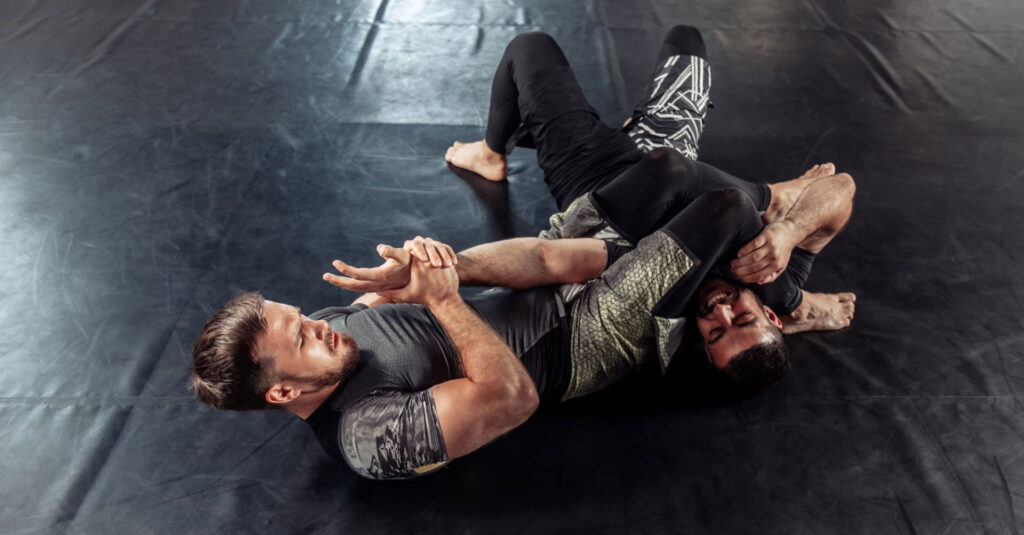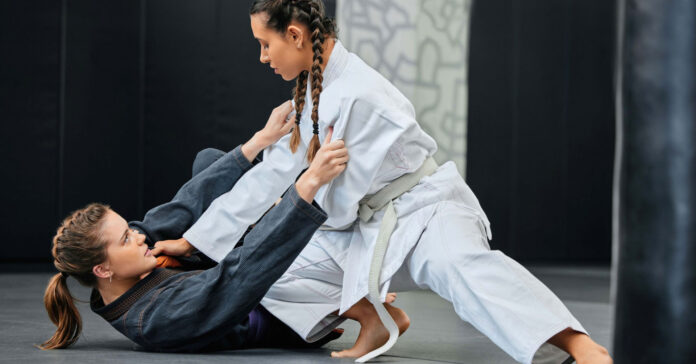A fight camp is a training site set up for a period of time, usually six to eight weeks, that people go to improve their fighting skills. Thinking about martial arts training can be overwhelming as they are usually portrayed in movies as intense activities; however, fight camps aid in making the training program simple and efficient so the trainee can achieve their set goals.
A camp can train you for a specific fighting style like MMA, jiu-jitsu, boxing, or a combination of different styles. Fight camp can be demanding and would push you both physically and mentally. They help athletes prepare intensely and adequately for an upcoming competition or event. There are a lot of excellent fight camps, including the San Diego Jiu-Jitsu Camp and North Park Jiu-Jitsu, both visited by world-renowned MMA fighters. Wherever you sign up for a fight camp, here are a few things you can anticipate:
1. Nutrition and Diet Plan
When preparing for a fight, you would follow a strict food schedule to get to the appropriate weight for your weight class. A nutritionist would create a diet plan focusing on reducing sugars and fats while increasing protein, carbohydrates, and vegetables. Your trainer would help you to identify any food allergies you might have when signing up.
You must also engage in muscle-building exercises and weight training to get into peak condition for the fight. These may include bench presses, curls, push-ups, sit-ups, and pull-ups. The main goal of the fight camp is to help you achieve the desired physical fitness level to succeed in the fight.
It is essential to stay committed to the training program and to follow the diet plan closely to achieve the desired results. You should not skip meals or cheat on the diet plan. Getting enough rest and recovery time between training sessions is also essential to avoid overworking your body. Dedication and perseverance can prepare your body for the fight and increase your chances of winning.
2. Conditioning Training
Fighting styles vary in length, ranging from short 30-second bouts to longer 30-minute ones. It’s unwise to exhaust all your energy in the first round, especially if you plan to fight until the end. To succeed, you must focus on endurance training, which involves different exercises like running, breathing, and practicing techniques. Endurance exercises help you last longer and better prepare you for different fight scenarios.
You’ll learn to fight in various conditions, such as sweating, pain, and blood flowing, simulating real fight scenarios. Your coach will guide you in maintaining your best shape to fight without exhaustion. Cardio workouts are vital as they help you build muscles essential for fighting styles. Repetition in training is also crucial since it enables you to become a better fighter. Dedication, commitment, and hard work can improve your endurance and help you become a better fighter.

3. Sparring Technique
Regular practice builds your stamina, endurance, and skill. To prepare for the actual fight, you will participate in a sparring competition with other camp members. This experience is like a mock fight against an actual opponent, allowing your coach to observe your stance and make necessary corrections. Your coach will provide guidance and advice that can significantly improve your skills.
Sparring is crucial in building muscle memory. This exercise helps you study your movements. It also assists you in identifying your weaknesses and areas to improve your performance. The training involves a lot of workouts, such as punching bags, glove and pad sparring, and tire carrying. These exercises will develop your strength and agility, essential for a successful fight.
Regular practice, sparring, and working out is essential to prepare you for your wedding day. It will improve your physical ability and increase your confidence, ensuring you are ready for challenges.
4. Meditation
Winning a fight isn’t just about physical strength. It’s also about having strong mental skills. At a training camp, you can learn how to improve your mental abilities, such as staying calm when there’s a lot of noise around you. This is useful when you’re in a match and things aren’t going your way, but you can regain your composure and make a comeback.
To complete the camp program successfully, you need to have a lot of self-discipline and mental toughness. It’s important to remember that the fight can be won or lost in your head, and having a “never give up” attitude can be a considerable advantage. The things you think about and focus on can significantly impact your performance, so the training camp will teach you how to cultivate a healthy mental diet to help you grow your mental strength.
5. Recovery Training
Maintaining peak physical fitness and avoiding injuries is crucial for athletes who engage in rigorous workouts. They must integrate rest periods into their training regimen to prevent muscle fatigue and strain and ensure overall well-being. In case of muscle soreness, athletes may opt for ice baths to alleviate discomfort or seek the assistance of medical professionals who can demonstrate specialized techniques to reduce pressure and pain in specific areas. For instance, massaging the space between the eyebrows can relieve headaches.
6. Strategies For Training
Before jumping into a fight, it’s important to remember that every fight is different. You should not rush into a fight without considering all the necessary details. To help you with this, a coach can assist in developing a game plan for approaching your opponent. This plan will also help you think on your feet and switch strategies when required. It’s important not to freeze or become overwhelmed during the competition because hesitation will give your opponent an advantage. You must develop multiple game plans to prepare for any situation as part of your training. This is crucial to ensure that you act instinctively during the fight.
Conclusion
Going to a fight camp has many advantages. Professionals will help you get in great shape and boost your mental toughness. You’ll also learn new training techniques and improve your decision-making skills. Plus, you’ll become more disciplined and motivated, meet like-minded people, and enhance your mood through exercise. Fight preparation takes a lot of work, so it’s best to do it safely in a structured environment.


